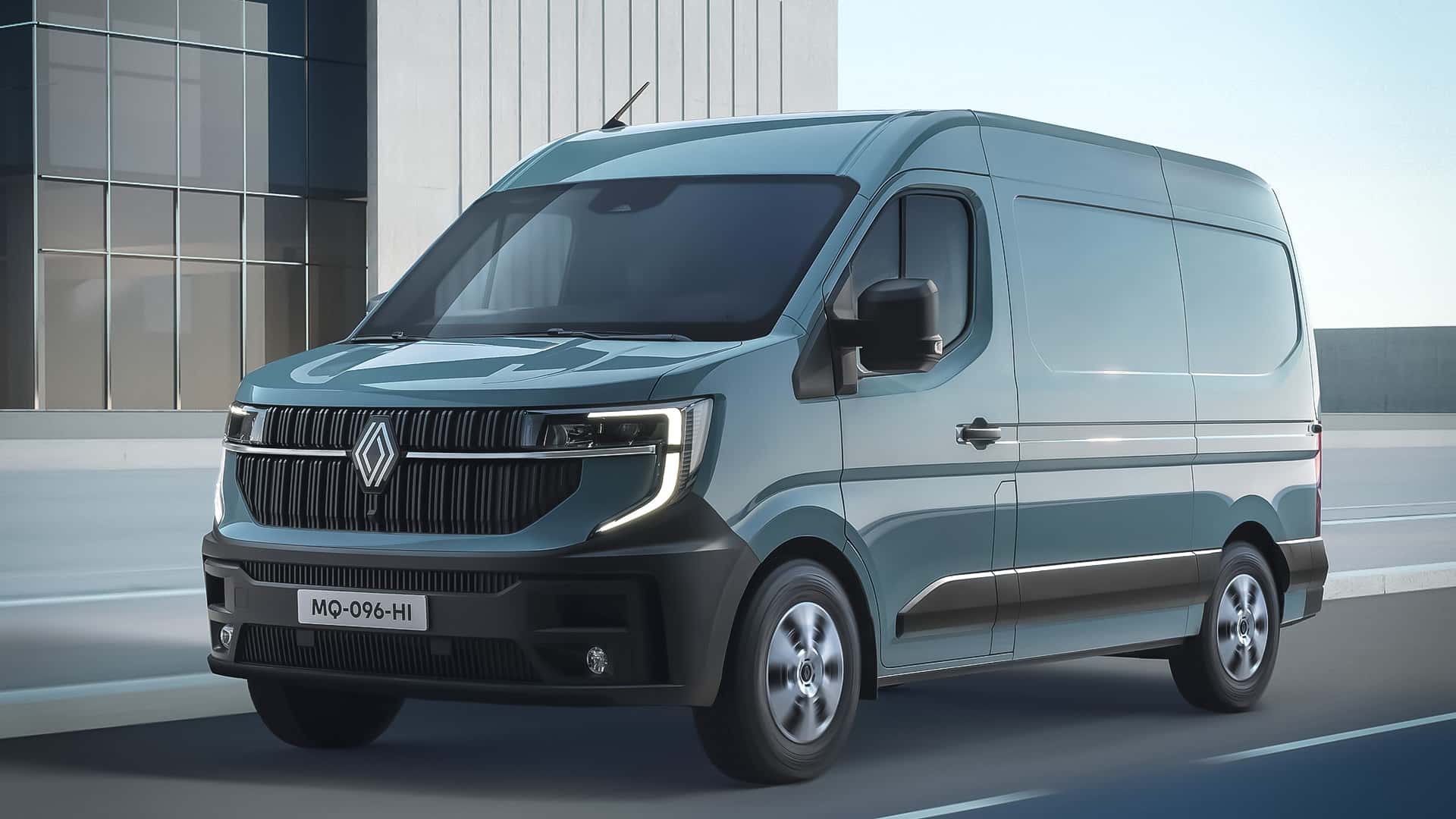
THE NEW RENAULT MASTER VAN GETS DIESEL, ELECTRIC, AND HYDROGEN POWER
Plus, Hyundai can build an EV in six hours after an order is placed at its new facility where 200 robots do half of the work.
Renault wants to prove diesel and hydrogen are not dead yet in the van segment, and Hyundai's Innovation Center Singapore boasts a highly automated production process.
This is AM Drive, Motor1's daily look at the news you need before you get in your car.
2024 Renault Master Has An Aerovan Design For Better Efficiency
The fourth-generation Renault Master has landed in Europe with a whole new look meticulously optimized to improve aerodynamics by 20 percent. The French brand touts an "aerovan" design for its new fullsize van that was too big to test in the wind tunnel. Instead, prototypes built to an 83-percent scale were used to perfect the body and drastically lower CO2 emissions.
In 2023, Renault still believes in the relevance of diesel engines in the commercial segment. It's going to sell the revamped Master with four dCi units producing 105, 130, 150, and 170 horsepower. These are newly developed powertrains that sip less fuel and can work with a manual gearbox or a new nine-speed automatic transmission.
Those looking for a greener solution can opt for a battery-electric Master with either 129 or 141 horsepower. In both instances, the motors produce an instant torque of 221 lb-ft (300 Nm). The lesser of the two motors is paired with a 40-kWh battery for a WLTP range of 112 miles (180 kilometers). The more potent one draws its juice from a bigger 87-kWh pack, good for over 255 miles (410 kilometers) of range.
Another zero-emission variant will come in the form of a Master with a hydrogen fuel cell setup planned to go on sale later in the van’s life cycle. Renault says it has engineered the large van with 20 driver assistance systems, bidirectional charging, and 20 body/wheelbase configurations to choose from.
The New Hyundai Motor Group Innovation Center Singapore Has 200 Robots (Including Dogs) That Do Half Of The Work. Oh, It Also Has A Farm.
Although officially unveiled today, HMGICS has been operational since the beginning of the year. It’s the place where Hyundai assembles the Ioniq 5 and its fully autonomous robotaxi version, with the Ioniq 6 sedan to enter production there in 2024. It has a maximum annual capacity of 30,000 EVs and benefits from a highly automated production process. So much so that a car can roll off the assembly line a mere six hours after placing an order.
Around half of all tasks are completed by 200 robots, including dog-like ones developed by Boston Dynamics, which Hyundai bought in 2021 for a cool $1.1 billion. These robots carry out more than 60 percent of component process management, ordering, and transportation. Doing so allows humans to focus on more creative and productive tasks instead of doing boring and repetitive work.
There’s more to HMGICS than just car production since the seven-story facility even has a so-called Smart Farm to produce nine different crops. The harvested produce is donated to local communities in Singapore and will also be included in the menu of a tasting lounge at a new restaurant opening in the second quarter of 2024. As a memento of their visit to HMGICS, customers will go home with a sample of harvested produce.
What else is there? A test track located on the factory’s roof, at 2,027 feet (618 meters) high. HMGICS also incorporates a dedicated area for handing over new cars to customers.
In Case You Missed Yesterday's AM Drive: